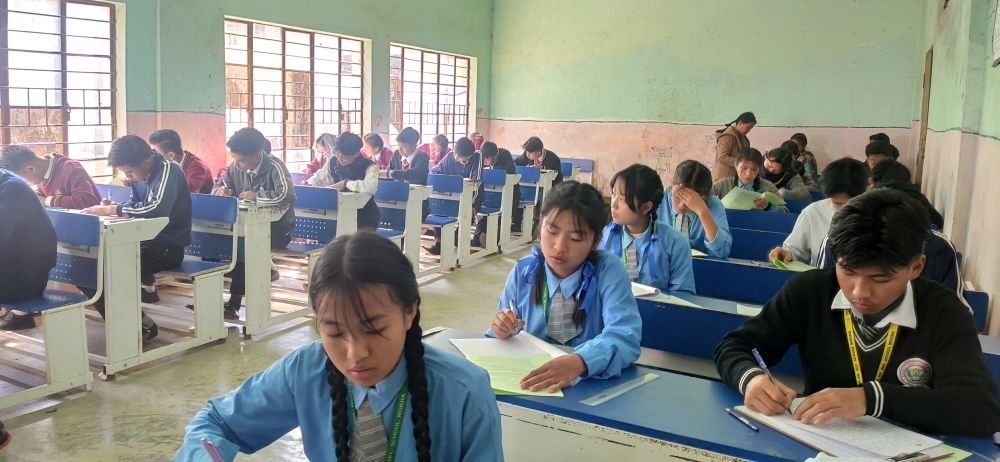
Morung Express News
Kohima | September 6
Considered as the first Indo-Naga Ceasefire, the September 6, 1964 Ceasefire today reached its 53rd year, with concerned leaders questioning if real peace exists today in Naga lands.
At the Chedema Peace Camp, white flags were hoisted to commemorate the 53rd anniversary of the Indo-Naga Ceasefire, along with a short event attended by NBCC members, and Nagas elders with Niketu Iralu as the speaker.
“Today we are remembering an event that is indeed historic for us and it will be correct to say that almost all Nagas were and still proud of it as a significant achievement. I believe the ceasefire can be said to be the first sign of recognition in Delhi that a solution by suppression with superior military force or economic development could not nullify the legal validity ad legitimacy of the position the Nagas has established,” asserted Iralu.
Acknowledging that every Naga village has its story of its people ‘who came out and gave everything’, Iralu noted that the discussion around the Ceasefire is also a discussion about the greatest experience of the Naga people at the most painful, and the most difficult times.
“The chief fact about the Naga struggle is that it cannot be treated by Delhi as illegal, anti-India, anti-national struggle that erupted in India after August 15, 1947. Unlike other liberation struggles, the Nagas had made their position clear before the British Empire that defeated them,” stated Iralu, adding that Naga nationality cannot be ignored or disputed.
Drawing similarities with the Tibetans in terms of identity and nationality, Iralu noted how both China and India does not recognize the sovereignty of Tibetans and Nagas respectively. However, a major contrast between the two peoples is that the Tibetans are clear about their identity, and their culture. Iralu therefore urged for the need to emphasis the Naga identity to the younger generation and the need to redefine the Naga situation today.
In forums outside Nagaland, Iralu mentioned how concerned leaders and commentators foresee the Naga future by commenting, “Nagas do not need anyone to destroy them, if Nagas are not careful, they will destroy themselves.” Everyone has a share in the bitterness and prejudices that have started to weaken our Naga society, according to Iralu.
“Year after year we the older generations have looked at what has happened during the past and made our own conclusion to reaffirm our long held positions which we have defended,” said Iralu. He said that the elders should consider how the younger generation of Nagas in schools, colleges and Universities in Nagaland across India and abroad are honestly asking about the struggle and the pain it has produced on them.
“The society and the highly challenging issues they (younger generation) are inheriting from us demands that we are truthful, realistic and free from our hates and prejudices,” asserted Iralu.


.jpg)
.jpg)
.jpg)
